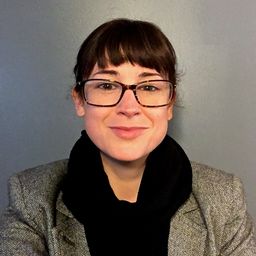
Michelle Bélanger
Sessions in which Michelle Bélanger participates
Saturday 4 June, 2016
Sessions in which Michelle Bélanger attends
Friday 3 June, 2016
Welcome addresses and cocktail, followed by the Concordia Signature Event "The Garden of the Grey Nuns". As the opening ceremony and cocktail take place in the former Grey Nuns' Motherhouse, recycled into campus residence and reading rooms by Concordia University, delegates will also have the possibility to discover the video Three Grey Nuns (3 minutes, by Ron Rudin and Phil Lichti. Three Grey Nuns recount their memories of communal life in the Grey Nun’s Motherhouse. Built...
Saturday 4 June, 2016
Sunday 5 June, 2016
Canal: Walking the Post-Industrial Lachine Canal (COHDS, 2013 - bilingual) is an audio-walk and booklet that takes listeners from the Atwater Market to the Saint Gabriel Lock, exploring the post-industrial transformation of a once heavily industrialized area. The Lachine Canal area has undergone dramatic changes, as mills and factories were closed and then demolished or converted into high-end condominiums. The adjoining working-class neighbourhoods ...
With his expression "ceci tuera cela," Hugo established almost two centuries ago a strong link between words and stones as transmission vehicles of human memory. We heritage experts would be inclined to consider stones as more reliable than words, what semiology seems to confirm: stones are clues, and clues are, according to Roland Barthes, tangible proofs of “what has been.” But the inspector Columbo has often shown how we can play with these clues, and Umberto Eco would easily forgive us th...
"What does heritage change?" is a multifaceted question to which the answer(s) are in primary respects related to real-life negotiations among different groups of citizens, cultures, races, ethnic groups, sexual identities, and social classes about received, official and/or widely accepted or accomodated intangible attributes, cultural traditions, historic monuments, buildings, and other transmitted or revived historical legacies. Heritage designated by and for whom, for what motivations, an...
Monday 6 June, 2016
La Pointe: L’autre bord de la track / The Other Side of the Tracks (COHDS /Public History Students, 2015 - bilingual) takes walkers into a working-class neighbourhood that has undergone massive deindustrialization and is now gentrifying. Pointe-Saint-Charles is also known for its place-based activism and strong neighbourhood identity. Produced by the oral history students in Steven High’s Working Class Public History course, working closely with two other cl...
In recent years, there has been a great deal of debate surrounding so-called ruin gazing and the politics of representing industrial or urban ruination. Recent years have seen photographers, artists, film-makers, urban explorers, scholars and others flood into newly deindustrialized areas to record signs of ruins and abandonment, prompting a public backlash against the hipster commodification of misery. Some have gone so far as to call the voyeuristic appeal of industrial or urban ruinatio...
Tuesday 7 June, 2016
Photography was recognized as an instrument of heritage preservation from the moment of its inception in the early nineteenth century, when projects such as Les Excursions Daguerriennes (1841-1843), a set of Romantic engravings of monuments based on photographic documents, established the links between sight and science, memory and history, hortatory reification and ‘ruin lust’ (Brian Dillon, 2014). This session was conceived in the certain knowledge that almost every speaker at t...
Dans un texte majeur, «L’arrêt de monde», Deborah Danowski et Eduardo Viveiros de Castro explorent le thème de la fin du monde tel qu’il se déploie aujourd’hui «dans l’imaginaire de la culture mondialisée». Entre fiction, philosophie et anthropologie, ils déroulent la scène sombre de nos futurs d’espèce humaine devenue force géologique et autodestructrice vivant non plus sur mais dans une planète considérée comme un être vivant et une puissance menaçante (Gaïa). Si le spectre de la catastroph...



